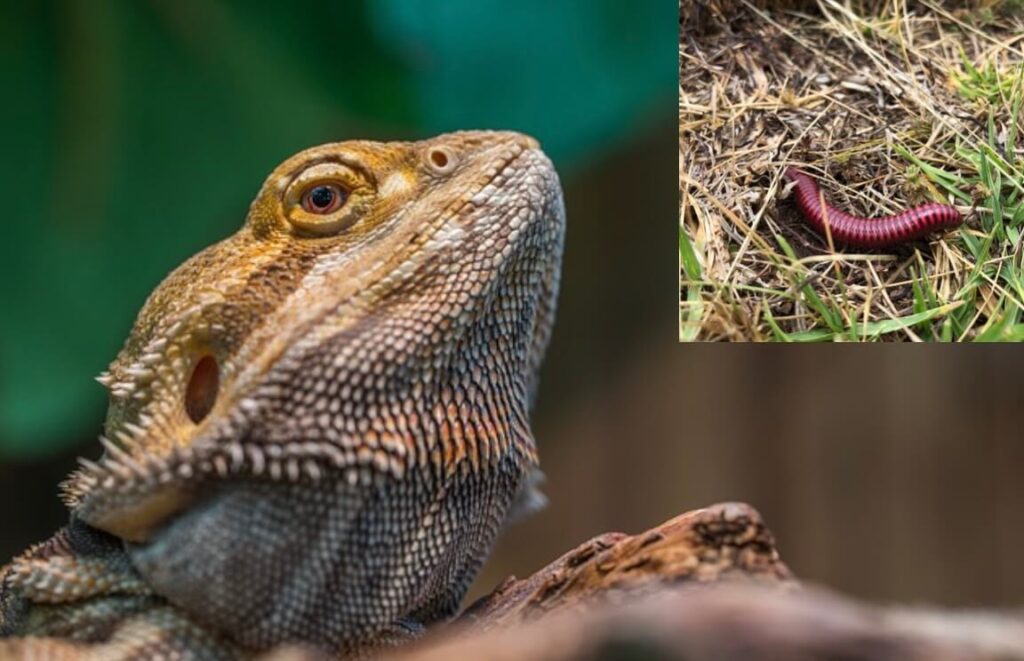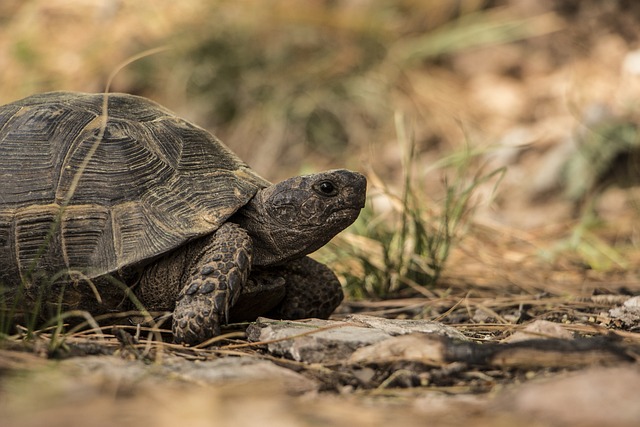If you’re wondering “Can bearded dragons eat superworms?” the answer is yes. Bearded dragons can eat superworms a few times a week, but there are some risks if they eat superworms too frequently.
In this article, we’ll explore the nutritional value of superworms for bearded dragons and how to feed them properly. As well, see our full guide on feeding beardies worms here – Can bearded dragons eat worms?
Can bearded dragons eat superworms?
- Can bearded dragons eat superworms?
- Superworm Nutritional Value for Bearded Dragons:
- How often should you give superworms to your beardie?
- Should I feed my baby bearded dragon superworms?
- Potential risks associated with feeding superworms to your bearded dragon:
- Frequently Asked Questions (FAQ): Can bearded dragons eat superworms?
- Should bearded dragons eat mealworms or superworms?
- Are superworms better than crickets for bearded dragons?
- What age can bearded dragons eat superworms
- How many superworms should I feed my bearded dragon a day?
- How many superworms should I feed a juvenile bearded dragon?
- Can you put mealworms and superworms together?
- What is the most nutritious insect for a bearded dragon?
- Foods bearded dragons can eat:
- Getting your bearded dragon calcium:
- Vegetables to feed your bearded dragon:
- Insects to feed your bearded dragon:
- How often should you feed a bearded dragon?
- What should a bearded dragon not eat?
- Recap: Can bearded dragons have superworms?
Superworm Nutritional Value for Bearded Dragons:
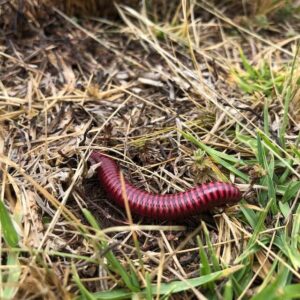
Superworms, otherwise known scientifically as Zophobas morio and sometimes called kingworms or morio worms, are highly nutritious for bearded dragons. They have large amounts of protein, which your pet needs to grow and sustain their bone health. They also contain high levels of vitamins, Magnesium, Iron, and importantly – calcium. Calcium is vital for a bearded dragon’s health. In addition, superworms contain quite a lot of phosphorus.
A note on phosphorus: In bearded dragons, it’s important to always be aware of the phosphorus and calcium content in food you feed them. Why? Bearded dragons need a good amount of calcium to grow and to maintain bone and muscle health in adulthood. However, phosphorus inhibits the absorption of calcium if there’s too much of it, relative to the calcium amount.
You should aim for a 2:1 ratio of 2 parts calcium to 1 part phosphorus. Unfortunately, superworms have far more phosphorus than calcium, so feeding them this worm regularly will seriously inhibit their calcium absorption. We’ve outlined ways to increase your beardie’s calcium intake below.
How often should you give superworms to your beardie?
You can feed your bearded dragon superworms every few days. Better yet, you should aim to give it to them every week or two, as a special treat. Many bearded dragons absolutely love the taste and crunch of superworms, which have a hard exoskeleton and are quite fun for them to chomp on.
Should I feed my baby bearded dragon superworms?
No, the hard exoskeleton of superworms can be hard for baby bearded dragons to digest properly. They’re still growing and need a lot of high calcium foods to grow properly. Consider Dubia roaches, crickets, and silk worms instead.
Potential risks associated with feeding superworms to your bearded dragon:
Giving your beardie a food source with a lot of phosphorus always poses a risk. You can sprinkle calcium powder on superworms to increase their calcium content. However, if you were to only give your pet phosphorus rich foods, they would eventually develop brittle bones and it could even lead to paralysis. That’s why we recommend you treat this particular worm more as a treat rather than a staple in their diet.
Superworms are also quite high in fat, and if your beardie overeats on them, they run the risk of gaining weight. Bearded dragons are already prone to obesity, especially since they’re likely in a terrarium all day and not roaming in the wild.
Lastly, superworms have hard shells that can be hard to digest if eaten in large quantities. If your dragon overdoes it, the shells could coalesce in their stomachs and become impacted. This could lead to digestion problems or stomach pain. Make sure to feed them superworms in moderation.
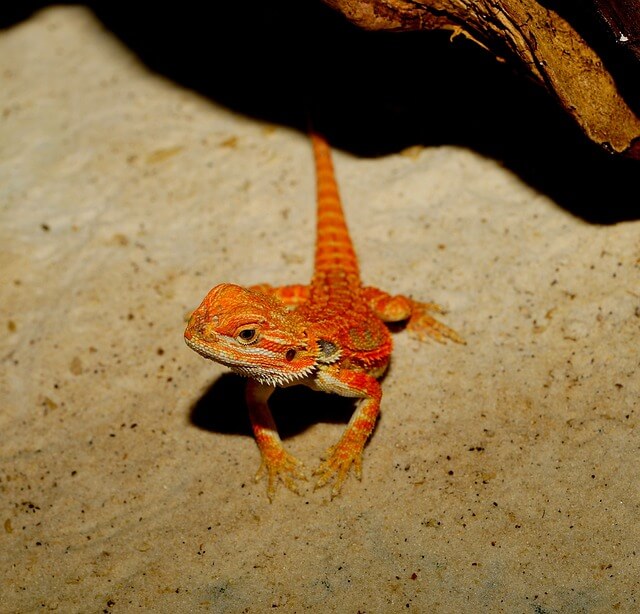
Frequently Asked Questions (FAQ): Can bearded dragons eat superworms?
Should bearded dragons eat mealworms or superworms?
Mealworms have less fiber and more fiber than superworms, so if given the choice, you should feed your bearded dragon superworms.
Are superworms better than crickets for bearded dragons?
Crickets have more fiber than superworms,and they also have a better calcium to phosphorus ratio. You should feed your bearded dragon crickets daily, and superworms on occasion.
What age can bearded dragons eat superworms
You can feed smaller superworms to juvenile bearded dragons, starting around six months old.
How many superworms should I feed my bearded dragon a day?
You should only feed your beardie superworms twice a week at most. During those feedings, you can give them three to four superworms.
How many superworms should I feed a juvenile bearded dragon?
You can stick to feeding them superworms up to twice a week, up to three superworms at a time. Try to give them smaller superworms if you can.
Can you put mealworms and superworms together?
Yes, you can keep them together. However, make sure to always put fresh food for the superworms (like carrots) or they will eat the mealworms.
What is the most nutritious insect for a bearded dragon?
Many experts say that Dubia roaches are the best insect for bearded dragons because they are high in protein, low in fat, and easy to get at pet stores everywhere.
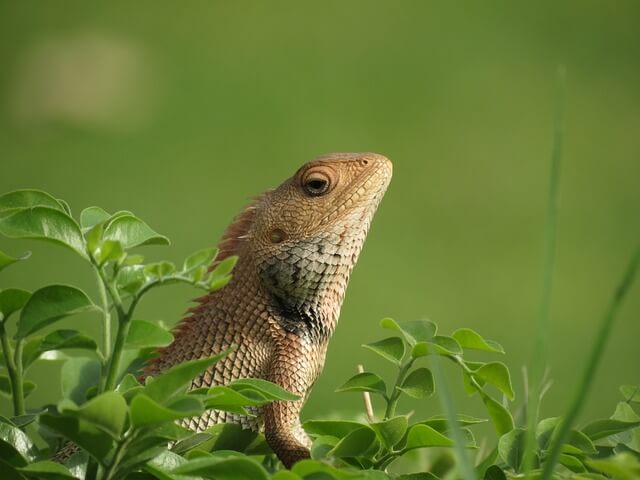
Foods bearded dragons can eat:
If you’re wondering what you should feed a bearded dragon, read our guidelines below. Bearded dragons are insectivores, which just means they thrive on insects as well as plant materials.
If you have a juvenile bearded dragon (between six and eighteen months old), give them about 80% vegetables and 20% live insects.
As your bearded dragon transitions into adulthood, give them the inverse, so 20% plant materials and 80% insects.
Getting your bearded dragon calcium:
Calcium is especially vital to a bearded dragon, especially a young one that is still growing. There are several ways to introduce more calcium into your beardie’s diet:
- Add in more high calcium vegetables like dandelions, bok choy, and collard greens.
- Dust calcium powder over their insects and vegetables to increase calcium levels.
- Make sure they’re getting their 12 hours of UVB exposure as they need this light to be able to properly absorb nutrients.
Vegetables to feed your bearded dragon:
- Peas
- Dandelion
- Green beans
- Cabbage
- Zucchini
- Pumpkin
- See our full list of vegetables to feed your bearded dragon
Note: Bearded dragons can also eat fruit in moderation. See here for a complete list of fruits bearded dragons can eat.
Insects to feed your bearded dragon:
- Crickets
- Kingworms
- Waxworms
- See our full guides to insects you can feed your bearded dragon and worms to feed your bearded dragon
Quick note: Live insects raised by you or bought from the pet store are best because they’re definitely pesticide free.
How often should you feed a bearded dragon?
During the first 3-6 months of your beardie’s life, try to feed them four to five times a day by giving them as many insects as they’d like in 10 minutes. They’re growing and need lots of protein during this stage.
Reduce the number of feedings to about two to three times a day when they’re growing into their juvenile years (between six and eighteen months).
As they become an adult, you can feed them once daily.
What should a bearded dragon not eat?
Avoid feeding your bearded dragon:
- Onions
- Leeks
- Chives
- Mushrooms
- Garlic
- Acidic fruit like oranges, lemons
- Rhubarb (can be toxic to them)
- Avocados (surprisingly, these make them ill)
- Eggplant
- Insects caught in the wild (there may be pesticides covering them)
- Venomous insects
- Dairy of any kind
- Rice and grains of any kind
- Frogs or toads
- Ham or other processed meats
Recap: Can bearded dragons have superworms?
- Yes, bearded dragons can eat superworms. However, they should eat them in moderation because of their high phosphorus content, high fat content, and hard to digest outer shells.
- Superworms provide protein, vitamins, and hydration for bearded dragons.
- Avoid feeding baby bearded dragons superworms.
For our full list of food to feed a bearded dragon, see our guide here.
Related articles:

